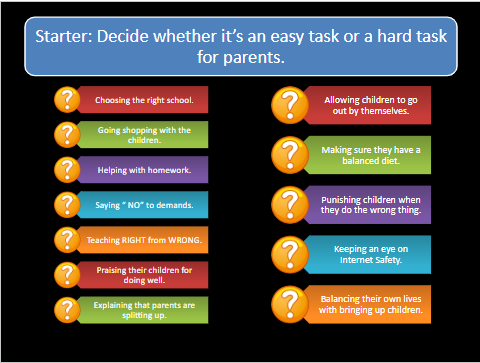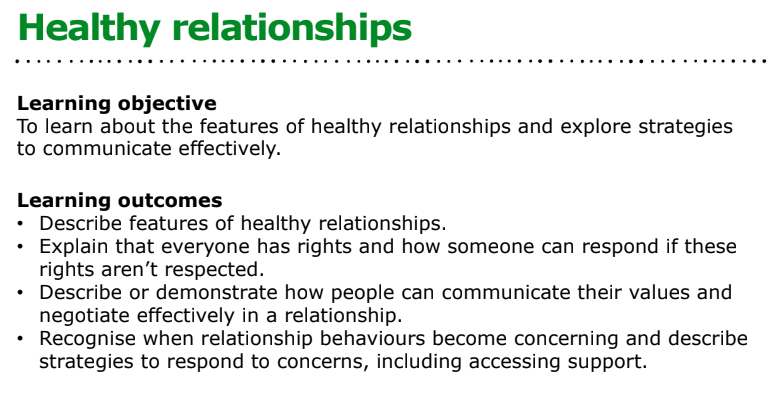Year 9 PSHCE -Respectful Relationships and Consent

22nd February 2024
Year 9 students explored the topic of respectful relationships in PSHCE this term. We started by looking at families and parenting and debated the following statement: “Parents find it easy to bring up their children.” It was interesting to hear the different viewpoints. All the students were comfortable sharing their ideas, feeling listened to and being able to develop and justify a point when asked. We then dug a little deeper and discussed specific statements linked to parenting, which allowed us to talk about the relationship between parents and their children at different stages in their lives.
The objectives of our next lessons were around healthy relationships and by the end of the lesson, students were able to describe the features of a healthy relationship, explain the rights all young people have in a relationship and say what to do when their rights are not respected, how to communicate effectively in a relationship and what to do when we have concerns. It was very enlightening to listen to the students justify their ranking of statements linked to rights in relationships; they had to arrange the statements in order of importance and explain why they agreed or disagreed with them. We then read articles 12, 15, 16 and 19 of the United Nations Convention on the Rights of the Child to better understand the rights young people have in a relationship and used them in a case study activity.
In the next two lessons we looked at consent and conflict resolution. The consent topic is a particularly crucial one and all students were able to explain what it is and how important it is in our end of topic quiz. The first activity we did to start our consent lesson was to form two lines facing each other. The students on one side had to ask if they could take a step towards the person facing them on the other side of the hall of Nations and take a step only when the other person had clearly said they could move. They were expected to stop when told to. Once everyone had stopped we discussed how easy or not it was to ask for and give consent and why we had stopped at different distances from our partner. The students then swapped roles and were allowed to communicate using gestures only, no words or sounds, to ask if they could step forward and to indicate yes or no. Students were encouraged to try out different signs and gestures and to ensure they were clear, and in case they were not, the person seeking consent needed to ask again to be entirely sure of the response given. Once we were back in the classroom, we used that activity when talking about ways to seek consent and emphasise that the responsibility lies with the person seeking consent. We also insisted on the fact that consent can be withdrawn at any time.
Mme Mwangi














